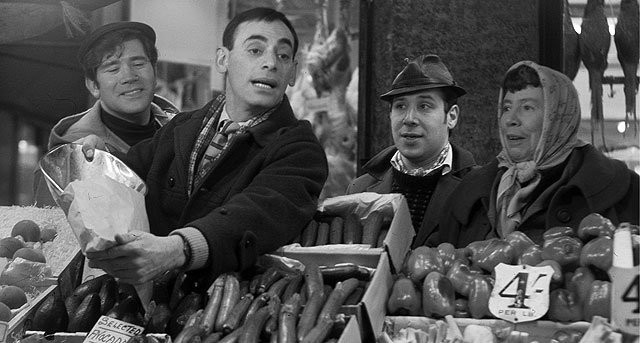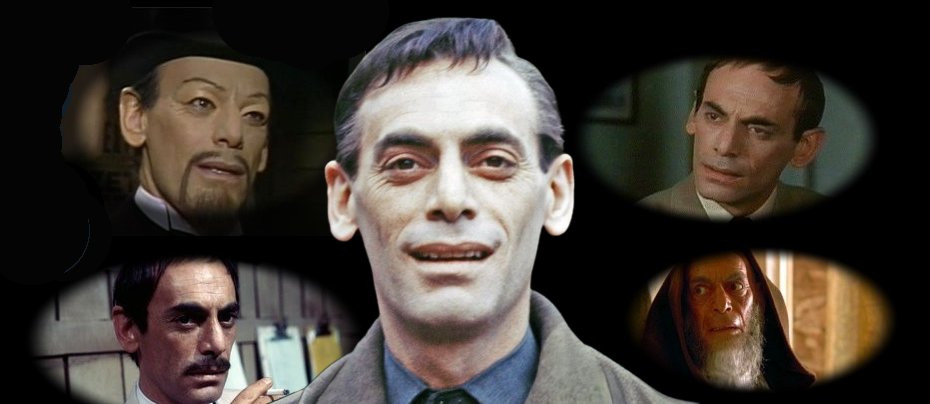
John Bennett
With over 300 screen credits to his name, it would be hard to miss the actor John Bennett in any number of roles that he appeared in across a near 50-year period.
Often cast as a villain, he had many roles on television, and Market in Honey Lane, Porridge, The Avengers, Strange Report, Bergerac, The Professionals, Doctor Who, The Forsyte Saga and I, Claudius only scratch the surface of his numerous appearances.
His face was instantly recognisable, but his name eluded most television viewers and as a - 'where have I seen him before?' - actor, Bennett most definitely qualifies as one of British entertainment industry's unsung heroes.
John David Bennett was born in Beckenham, Kent, on 8 May 1928. His Jewish parents were Alfred Bennett and Bessie Bennett and he was educated at Bradfield College in Berkshire, later abandoning ambitions of becoming an architect, and instead trained at the Central School of Speech and Drama, which was followed by a wide repertory theatre experience.
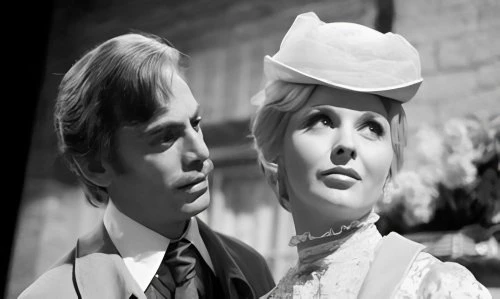
In 1946 he joined the Bristol Old Vic – Theatre Royal where he appeared in 1066 and All That. After spending the latter part of the year and the early part of 1947 in that role, Bennett took to the road again, eventually making his ‘near’ West End debut at the Watergate Theatre, WC2, on 5 June 1950, before arriving at the Piccadilly Theatre in 1953. Bennett played Leslie Gowland (the vicar's son) in The Gay Dog (featuring Wilfred Pickles in the lead and also starring Megs Jenkins, Joan Hickson and Kenneth Haigh) until it finished its run in London. Bennett stayed with the production as it toured the country, appearing at the Opera House, Manchester, the Bristol Hippodrome and other locations. When the play was turned into a feature film the following year, Bennett lost out on the role to William Russell (an original Doctor Who cast member - billed here as Russell Enoch).
Instead, Bennett was cast in Diplomatic Passport, a low-budget 1954 crime thriller made at MGM British Studios in Borehamwood. Also in the cast of Diplomatic Passport was Honor Blackman. The film's star was Marsha Hunt, an American actress whose career was damaged by the McCarthy-era blacklisting of suspected communist sympathisers in the early 1950s. Although she was never called before the House Un-American Activities Commission, her name was nevertheless smeared all over Hollywood as "Red", and thereafter she seemed to be stuck in b-movies until she semi-retired in the 1960s before making a comeback as a television 'guest star' in the 1970s and 80s.
From April 1953 to March 1954, Bennett found himself as understudy to Brian Reece, as Richard Sherman, a middle-aged publishing executive in New York City, in The Seven Year Itch, George Axelrod's three-act play. The production opened at the Theatre Royal, Brighton, before going on the road to appear at the Grand Theatre and Opera House (Leeds), the Grand Theatre (Blackpool), the Royal Court Theatre (Liverpool), the Aldwych Theatre (London), the Golders Green Hippodrome and Streatham Hill Theatre.
When the play was eventually made into a film it contained one of the most iconic pop-culture images of the 20th century – Marilyn Monroe standing on a subway grate as her white dress is blown upwards by a passing train.
Having missed out on appearing with one Hollywood superstar in 1955, Bennett managed to appear with another in 1960 when he was cast in the British made film The Challenge, released in the US as It Takes a Thief, in which a gang leader dumps her criminal boyfriend when he is convicted of robbery. The 'gang leader' was none other than Hollywood sex siren Jayne Mansfield. Although her film career was short-lived, she had several box-office successes - The Challenge was not one of them.
Before that, Bennett had made his television debut on 20 July 1958 in a BBC Sunday-Night Theatre presentation: The Frog, a Rudolph Cartier produced play based on a novel by Edgar Wallace which starred Wilfred Pickles, Cyril Shaps, Frank Williams, Donald Sinden and Michael Caine.
As the 1960s took off, so did John Bennett’s career as a reliable and in demand character actor. Between 1960 and 1964, Bennett appeared over 70 times on the small screen. In 1965, he won his first substantial role when he was cast as Ray Boscombe, the ambitious, power-seeking editor of fictitious Fleet Street newspaper The Globe in the ATV series Front Page Story. The series briefly made Bennett the star turn of a television show but after debuting in January it came to an end in July and never returned for a second run.
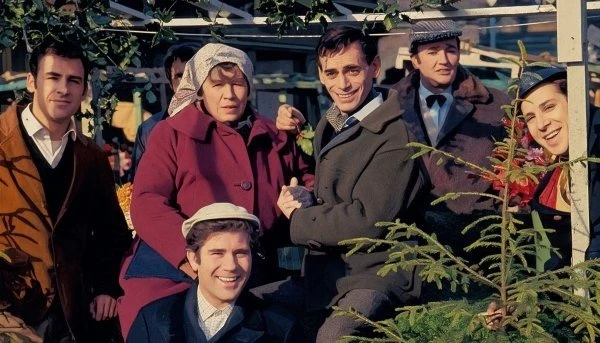
Bennett went back to being a character actor for the next two years before a leading role came around again. Market in Honey Lane was a television series set in the vibrant and lively East End of London. Produced at Elstree Studios, it gained immense popularity and became a ratings hit. It was a weekly one-hour drama that delved into the lives of various characters within a bustling street market. Bennett played a fruit-and-veg stallholder called Billy Bush. It was an immediate success, attracting more than 20 million viewers at its peak, but a decision to switch to a twice-weekly 30-minute soap format the following year under the shortened title Honey Lane, soon caused those figures to come crashing down. It no longer enjoyed a network slot on ITV: some regions screened it during afternoons, others late at night. Some regions abandoned it altogether. Shops, market stalls and a pub which had been built at Elstree by its producers, ATV, were taken down. They were rebuilt when the BBC bought the studios and launched EastEnders in 1985.
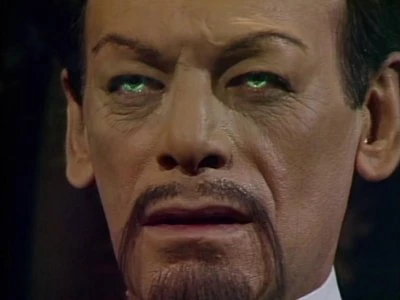
Still very much in demand for character roles, John Bennett remained very active and turned up on our screens with great regularity. Between 1970 and 1979 he appeared on our screens over 50 times. He played the role of Josef Goebbels in Hitler: The Last Ten Days. He appeared as a witness in three Crown Court cases. He shared the screen with two Doctor's: Jon Pertwee and Tom Baker. And as a medical examiner, he requested Ronnie Barker's character, Fletcher, to provide a urine sample in a jar that was placed on a table some distance away. Fletcher's incredulous response— "What, from here?!" —became a hilarious moment in the opening episode of the classic British sitcom Porridge.
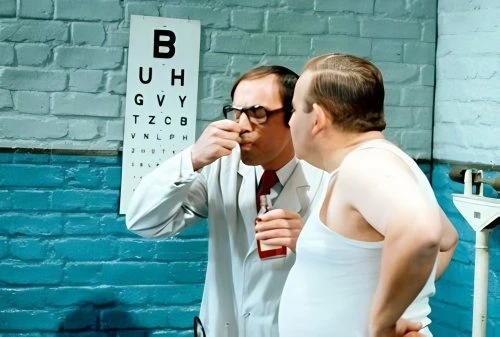
Bennett’s filmography includes notable roles in several well-known movies. Lawrence of Arabia (1962), A Funny Thing Happened on the Way to the Forum (1966). The House That Dripped Blood (1970), and Henry VIII and His Six Wives (1972). He lent his voice to Holly, the exhausted rabbit who escapes the destruction of Sandleford Warren, in the animated adaptation of Richard Adams’ beloved book, Watership Down (1978). He also took on the role of Dr. Ehrlich in The Pianist (2002), a powerful Holocaust drama directed by Roman Polanski. In this film, he warned of the impending horrors faced by Polish Jews as they were relocated to the Warsaw ghetto. That same year he appeared in the Tom Cruise film Minority Report.
In his later stage career, Bennett took on a variety of roles. Notably, he portrayed Yasha in The Cherry Orchard and Henry Percy (Hotspur) in Henry IV, Part 1, both under the direction of John Gielgud. He also played Exton in Richard II and the Volscian Senator in Coriolanus at the Almeida Theatre. Additionally, he appeared as Marley’s Ghost in A Christmas Carol with the Royal Shakespeare Company and as Uncle in Inner Voices at the Royal National Theatre. His work extended to the Royal Exchange in Manchester.
Beyond drama, he made his mark in West End musicals, gracing productions such as On Your Toes (at the Palace Theatre), Marilyn! (at the Adelphi Theatre), The Sound of Music (at the Apollo Victoria), and The King and I (at the London Palladium). Notably, his performance as Louis Epstein in Jolson The Musical (at the Victoria Palace and Royal Alexandra Theatre, Toronto) earned him an Olivier Award nomination for Best Supporting Performance in a Musical. His final stage role was as Conrad in Gates of Gold by Frank McGuinness, alongside William Gaunt, at the Finborough Theatre in London, back in December 2004.
In 1989, Bennett starred in 13 episodes of Saracen, Central Television's attempt to create an action-adventure series in the same vein as The Professionals. Created by Chris Kelly (Clapperboard), the series opened with a 90-minute pilot feature but for some inexplicable reason almost all the main characters from that pilot were dropped when it went to a series. Bennett joined the cast in the first episode. In the 1990s he appeared in a few US produced TV shows – Hunter, Jake and the Fatman and Alien Nation (Millennium). He was Sigmund Freud in Sherlock Holmes and the Leading Lady (1992). In 2001 he appeared in the UK/US co-produced science fiction series The Infinite Worlds of H.G. Wells.
As the new millennium ticked over Bennett appeared in Casualty, Doctors, New Tricks, Rosemary and Thyme, Cathedral, Rome, and his last television series appearance - Waking the Dead (2005).
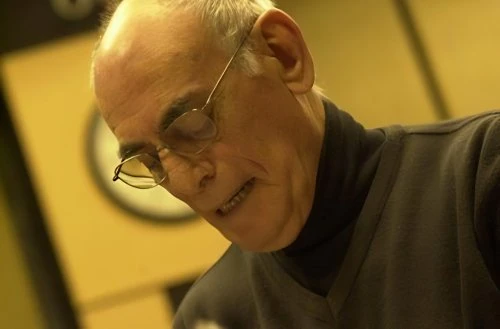
Offscreen, Bennett was an enthusiastic amateur flier and an accomplished glider pilot. For many years he was a member of the RAF G.S.A (Gliding and Soaring Association) Centre at RAF Bicester and was a part owner of a number of high-performance gliders.
He was married twice. Firstly to Patricia Hastings from 1953 to 1979 and secondly to the actress Caroline Mortimer. John Bennett passed away on 11 April 2005, aged 76 years. The terms versatile and prolific are often thrown around, but they truly apply to John Bennett. He consistently delivered deeply convincing performances, which led to him being frequently cast throughout his long career. While his name might not have been widely recognized, his face was unmistakable. His contributions to the world of acting were significant and enduring.
Published on September 12th, 2024. Written by Marc Saul for Television Heaven.







